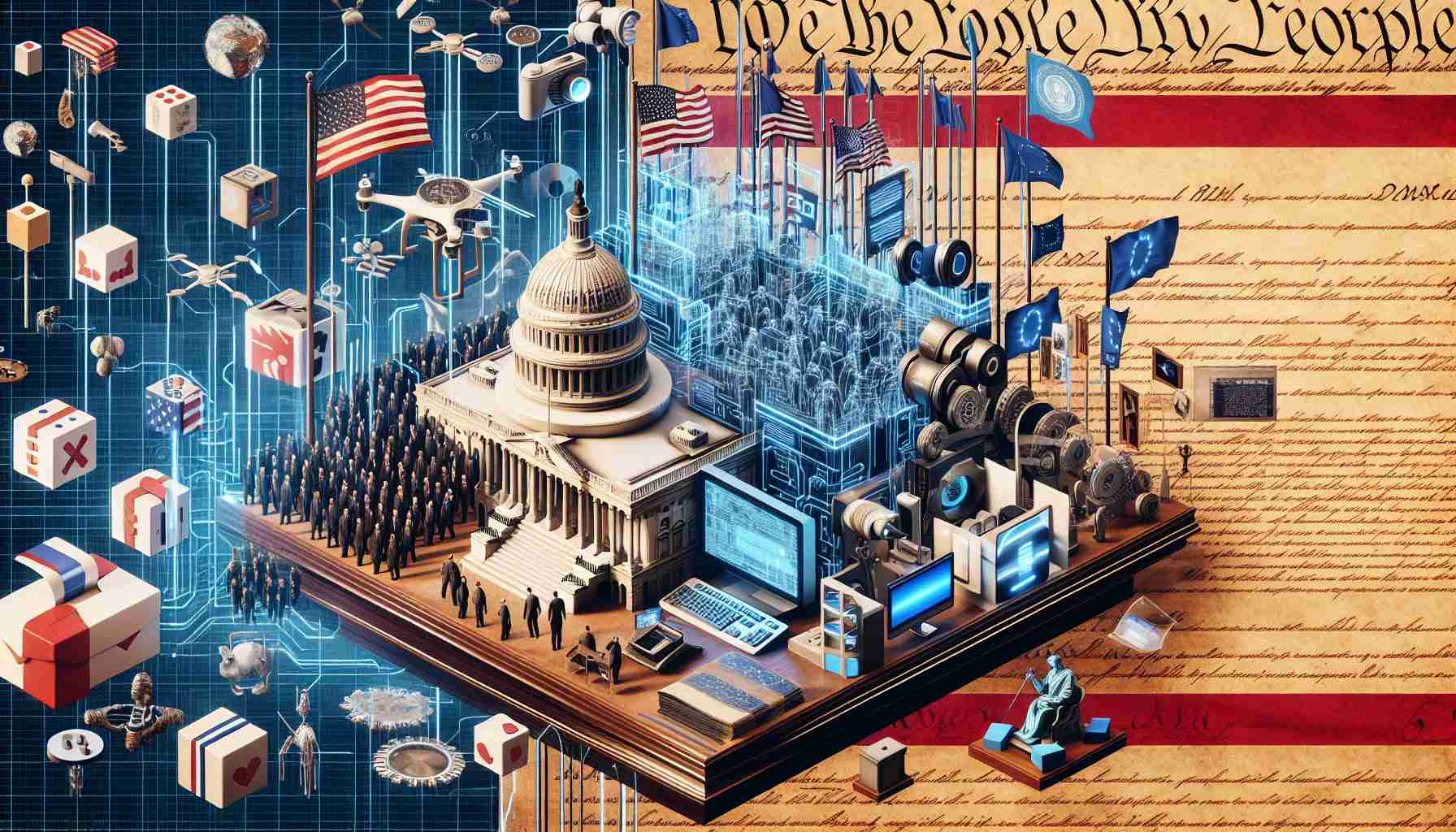In the landscape of today’s political arena, the phrase “the technological is political” resonates deeply, highlighting the significant influence that major tech corporations exert over democratic processes. This shift has become increasingly evident, particularly during high-profile events, such as when prominent tech figures align themselves with political leaders, revealing the close ties between technology and governance.
Historically, the tech sector operated with minimal political engagement, as governments were largely oblivious to its potential impact. Companies like Google and Amazon flourished in a lax regulatory atmosphere, unbothered by public scrutiny. The conventional measures of antitrust behavior focused mainly on consumer harm, which in their cases, was overlooked as their services appeared to be offered “for free.”
However, the recent governance under the Biden administration has ignited renewed regulatory vigor, with agencies now scrutinizing monopolistic practices among these tech giants. Landmark legal decisions have identified firms like Google as monopolies engaging in anti-competitive behavior, thereby paving the way for potential regulatory actions, including breaking up companies that hinder fair competition.
The financial power of emerging tech sectors, particularly cryptocurrency, signals a notable evolution in industry’s political engagement. Reports indicate that significant funds have been channeled into political action committees favoring candidates aligned with technology interests, demonstrating a strategic approach to influence legislative outcomes.
The transformation of technology’s role in politics is undeniable, marking a critical juncture in the relationship between innovation and governance today.
Unlocking the Intersection of Technology and Politics: Tips and Insights
In today’s ever-evolving landscape, the relationship between technology and politics is more profound than ever. As discussions around tech corporations’ influence on democratic processes become more pronounced, being informed can empower you to navigate this terrain effectively. Here are some tips, life hacks, and fascinating facts about the intersection of technology and politics.
1. Stay Informed About Tech Policies
Understanding the policies that govern technology is crucial. Follow credible news outlets and tech blogs to stay updated on legislative changes and policy discussions affecting the tech industry. Knowledge is power, especially when significant tech companies are implicated in political processes.
2. Engage in Digital Advocacy
Many organizations focus on promoting ethical tech practices. Get involved in advocacy by signing petitions or participating in discussions. Platforms like Change.org often highlight pressing issues related to technology and politics, allowing you to make your voice heard effectively.
3. Understand the Impact of Social Media
Social media plays a pivotal role in shaping political opinions. Familiarize yourself with how algorithms influence what news you see and how it can affect public perception. Platforms like Facebook and Twitter often act as gateways for political discussions, so remain critical about the content shared and its sources.
4. Protect Your Data
In an age of digital information, your personal data can be politically exploited. Use tools like VPNs and privacy-focused browsers to safeguard your online presence. Being aware of how your information is used politically can help you resist unwarranted manipulations.
5. Explore the Influence of Cryptocurrency
Cryptocurrency persists as a disruptive force within both the financial and political realms. As interest grows, familiarize yourself with how these digital currencies work and their potential effects on political funding and campaigning. Engaging with communities on platforms like Reddit can provide insight into ongoing trends and developments.
Interesting Facts:
– Did you know that the term “big tech” refers to a small number of dominant technology companies that exert substantial control over both market dynamics and political landscapes?
– Research shows that tech companies have donated millions to political action committees in the lead-up to elections, illustrating their role in shaping regulatory environments.
6. Support Ethical Tech Companies
Whenever possible, choose to support companies that prioritize ethical practices in technology. This may include those advocating for net neutrality, privacy, and transparency. Your choices as a consumer can indirectly influence corporate behavior.
7. Participate in Local Politics
Often overlooked, local politics significantly impact technology regulations. Attend town hall meetings, engage with local representatives, and advocate for policies that consider the ethical implications of technology in your community.
In conclusion, as technology continues to weave itself into the fabric of our political sphere, being proactive and informed is essential. Like never before, our engagement with both can shape the nature of governance and accountability in the years to come. For further insights on technology’s role in political discourse, visit TechCrunch for in-depth analyses and discussions.
